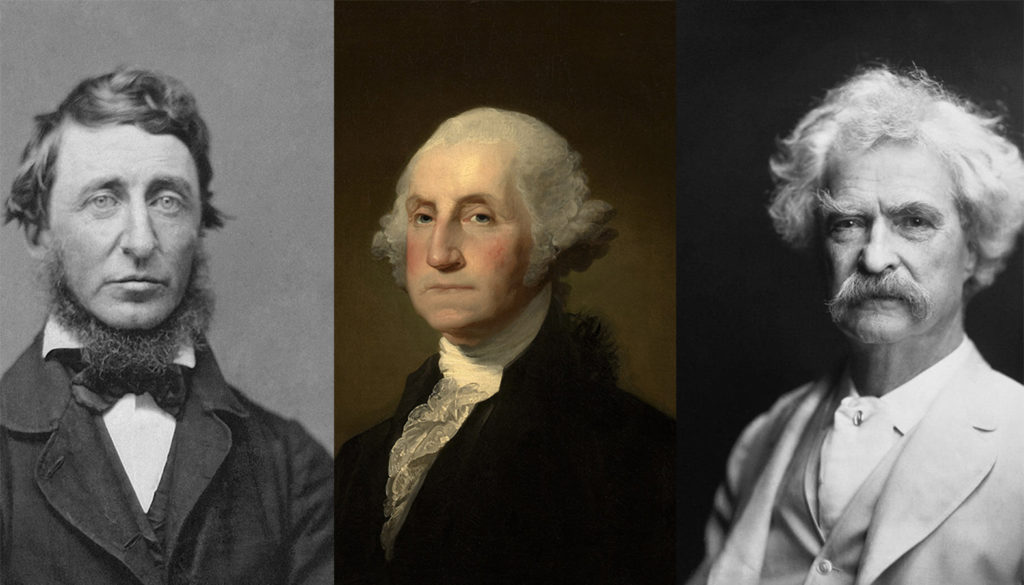Thanksgiving is one of those few national holidays when a semi-religious sentiment is allowed. It peeks through in reply to two obvious questions: thanksgiving to whom for what? In search of an answer, it seems appropriate to quote three notable Americans on what this observance meant to them. The three writers are Henry David Thoreau, Mark Twain, and George Washington.
Henry David Thoreau: “My thanksgiving is perpetual. It is surprising how contented one can be with nothing definite — only a sense of existence. Well, anything for variety. I am ready to try this for the next 1,000 years & exhaust it … My breath is sweet to me.”
Thoreau, the dean of American nature writers, is the man who spent a year living in semi-solitude in the woods near a pond and then wrote a book named for the pond — Walden.
The volume stands today as one of the enduring landmarks of American letters.
As one might expect, Thoreau’s lower-cased thanksgiving quote is an expression of radical individualism. And it is fully at home with another quote from his well-known essay “Civil Disobedience,” which expresses an anarchist view of government: “I heartily accept the motto, ‘That government is best which governs least;’ and I should like to see it lived up to more rapidly and systematically. Carried out, it finally amounts to this, which also I believe, ‘That government is best which governs not at all.’ ”
No. 2 is Mark Twain:
“Thanksgiving Day, a function which originated in New England two or three centuries ago when those people recognized that they really had something to be thoughtful for — annually, not oftener — if they had succeeded in exterminating their neighbors, the Indians, during the previous twelve months instead of getting exterminated by their neighbors, the Indians.
“Thanksgiving Day became a habit [when] it was perceived that the exterminating had ceased to be mutual and was all on the white man’s side, consequently on the Lord’s side; hence it was proper to thank the Lord for it and extend the usual compliments.”
Twain is remembered for two upbeat classics, “Huckleberry Finn” and “Tom Sawyer.” These are indeed lasting achievements that celebrate the joys of boyhood. But by his latter years — as represented in his Thanksgiving quote — he had become a bitter man, bankrupted by the collapse of bad investments and soon to suffer the deaths of his wife and two daughters.
And then, thank goodness, there is George Washington, who in 1789 issued the First Presidential Thanksgiving Day Proclamation in these words:
“Whereas it is the duty of all nations to acknowledge the providence of Almighty God, to obey His will, to be grateful for His benefits, and humbly to implore His protection and favor; and Whereas both Houses of Congress have, by their joint committee, requested me ‘to recommend to the people of the United States a Day of Publick Thanksgiving and Prayer, to be observed by acknowledging with grateful hearts the many and signal favors of Almighty God, especially by affording them an opportunity peaceably to establish a form of government for their safety and happiness.’ ”
It wasn’t until 1863, when Abraham Lincoln declared a day for giving thanks in the fall, that the idea of a yearly observance caught on nationally. But never mind about Thoreau and Twain. By Lincoln’s day, George Washington had already provided us with a Thanksgiving proclamation that today, nearly two-and-a-half centuries later, still stands as a thank you that a nation can put its heart into.

